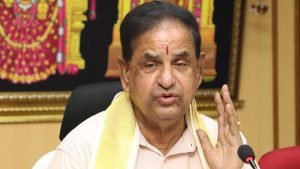
For the last four months, the farmers of Punjab have led an intense movement against the three farm bills passed in Parliament on 20 and 22 September—the Farmers Produce Trade and Commerce (Promotion and Simplification) Bill 2020, the Farmers (Empowerment and Protection) Agreement on Price Assurance and Agricultural Services Bill 2020 and the Essential Commodities (Amendment) Bill 2020. At first, in June, the central government had introduced these laws as ordinances. Punjab’s farmers started opposing all three right away.
Intense pressure from farmers has forced the BJP’s old ally, the Akali Dal, to break its relationship with the BJP. With all Punjab’s parties protesting against these bills, the BJP finds itself alone in Punjab. Further, due to the participation of all sections of farm workers, from landowners to employees, daily-wage workers, dairy farmers, and so on, this agitation has taken the form of a mass movement.
So far, since 25 September, the 31 farmers’ organisations of Punjab have completely closed off the state: trains were stopped, toll plazas remain closed, Reliance’s malls and petrol pumps are shut, too, and Reliance-owned Jio’s SIM cards are being boycotted. BJP leaders virtually face a gherao as demonstrations are taking place right outside their homes. On 20 October, the Punjab government unanimously passed three bills (both BJP MLAs were absent) in the Assembly to counteract the laws introduced by the Centre.
Frustrated by the movement, the Centre has been continuously reassuring farmers that its laws are in their best interest; that they can now sell their crops anywhere they want, and that there will be no tampering with Minimum Support Price (MSP). The Modi government has been insisting that the Congress and other Opposition parties are misleading farmers on these bills. Farmers and agricultural experts, on the other hand, are seeing these laws as an attack on farmers and against the federal structure.
The key peasant organisations involved in the ongoing struggle include the Bharatiya Kisan Union (Ekta-Ugrahan), Bharatiya Kisan Union Ekta (Dakonda), Revolutionary Kisan Union, Kisan Mazdoor Sangharsh Committee, Jamhoori Kisan Sabha, Punjab Kisan Union, Azad Kisan Sangharsh Committee, Kul Hind Kisan Sabha, Hind Kisan Sabha Punjab, Jai Kisan movement and many others—this does not include the farmers’ wings of any political party, which is an indicator of the sweep of anger against the new laws.
Dr. Darshan Pal, convenor of 31 farmers’ organisations in Punjab, says, “So far, thousands of villages have burnt effigies of [Prime Minister] Narendra Modi and the central government. Political parties have joined the movement in recent days, while our movement has been going on for more than three months.”
So, farmers’ organisations have sounded the bugle of war against the central government. Around 13,000 gram panchayats in the state have passed resolutions against the new laws. People are joining protest processions by the tractor-trolley-load. The feeling among people is that if they do nothing now, tomorrow will be too late. In September, a kisan morcha was held for eight consecutive days at Prakash Singh Badal’s native village, Badal, and Captain Amarinder Singh’s city of Patiala, in which youth and women participated enthusiastically.
Mansa farmer leader Ram Singh says many people from nearby villages have broken away from political parties and become members of farmer organisations. In Bathinda’s Maur village, very few people used to participate in the peasant movement, but now six bus-loads of them joined the front against Badal. In Muktsar district, about two dozen villages of Prakash Singh Badal’s Assembly constituency, Long, offered to join the fronts themselves. Women wearing saffron dupattas are emerging out of villages to participate in the movement. Community kitchens are running in every village to sustain the protests.
Gurdev Singh, an elder of village Gajju Majra in district Patiala, says, “We will break the stubbornness of the central government.” Jagmeet Singh, a young farmer from Dodas village of Muktsar, says, “The farm laws have awakened the sleeping farmers and now even the agents are saying that there is no life without farmers.”
The farmers of village Badal have also jumped into this struggle. The elders are donating the savings deposited in their old age pension accounts to farmers organisations. Rickshaw-pullers and poor labourers are donating Rs.10 from their hard-earned income, saying if farmers of the country are in danger, they cannot feel safe. The well-known woman farm leader from the Malwa region, Harinder Kaur Bindu, says, “The Center has passed anti-farmer laws but we will not allow them to be implemented. The farmers of Punjab have forced anti-people laws passed by earlier governments to be revoked.”
The writers, intellectuals and artists of Punjab are openly supporting the movement too. These days, many famous Punjabi singers have been composing and singing numbers in support of farmers. Artists singing songs on folk themes are joining hands with farmers, marching shoulder-to-shoulder through the villages of Punjab. They are encouraging people to jump into the struggle with their fiery songs.
Surendra Sharma, a theatre artist from Ludhiana district has been stirring people up with his plays. In the villages of Malwa, people are showing documentary films on agriculture to farmers. Folk singer Jagseer Jida is supporting their movement too. According to Amolak Singh, president, Punjab Public Council, youth from the ordinary farmer’s homes in villages have started writing and enacting plays during this movement.
Some farmers gathered at a Reliance petrol pump in district Mansa call the Modi government a “puppet of Ambani-Adani”. They say the government has cleared these three laws “to please these capitalists”. For this reason, they say, they have “surrounded” the petrol pumps and malls of Reliance, and are burning Jio SIMs. Recently, Reliance’s malls and petrol pumps were surrounded on a large scale in Sangrur and Ludhiana districts, where, too, Jio SIMs were burnt.
Seeing the peasant movement intensify, Punjab’s political parties have jumped in. The Akali Dal, which had earlier argued in favour of the three central laws, has now bowed before the farmers’ movement and left the central government for the first time. It has also launched rallies against these laws. The Congress is constantly organising rallies against these laws too, and former party president Rahul Gandhi has attended some of them. On 20 October, the Punjab government unanimously passed bills that directly contradict the central laws. The BJP was absent from the Assembly on the occasion. The state government has included MSP in these bills and made a provision for three years’ punishment for those who pay farmers a lower price than the MSP. The bills ban hoarding and black marketing of crops. After it was passed, the legislators of all parties (except the BJP), led by the Chief Minister, met the state governor. Amarinder Singh told the media later that he has appealed to the governor to sign the bills passed in the Assembly.
The Aam Aadmi Party’s Punjab convenor and Member of Parliament from Sangrur, Bhagwant Mann, says the Modi government has passed these laws in an undemocratic manner. Similarly, other parties of Punjab including the Lok Insaaf Party are raising their voice in favour of farmers. The situation has brought about complete isolation of the BJP in the state.
On 14 October, the Centre had organised a meeting with farmers’ organisations of Punjab in Delhi, which did not succeed. Farm leaders Darshan Pal and Jagmohan Singh say the government did not approach that meeting with the right intention. No minister of the government had come to speak with us, they say. Instead, a government official, “who seemed to take us for little children and started explaining the benefits of laws was there for the meeting,” Singh says. What really jolted them was that the government had simultaneously put eight ministers on duty to hold virtual meetings in support of these laws.
The loss of faith in the central government is another reason why Punjab’s farmers had besieged state-level leaders of the BJP. There have been strong demonstrations against BJP leaders Ashwani Sharma, Madan Mohan Mittal and Vijay Sampla. As expected, BJP leaders are calling it a “Congress conspiracy”. The Adhati [Wholesale Traders] Association of Punjab has also stood in favour of the farmers.
Yet, even economists from Punjab have been arguing against the three laws of the central government. Renowned economist Ranjit Singh Ghumman says, “While these laws will open the way for private companies to purchase crops, the rights of the states will also be hurt.” Dr Gyan Singh, a prominent economist, explains why there is opposition from farmers to the new laws: “Actually, we are suffering from the policies adopted in the early nineties. All three [central] laws pave the way for the purchase and sale of crops, end the guarantee for prices of agricultural goods, and weaken the essential commodities act of 1955.”
Ghumman says, “Since 1965, government agencies have been purchasing wheat and rice crops from farmers at the MSP fixed by the central government. Of course, there has been criticism by some political parties, farmer organisations and scholars, who want problems in MSP fixed. Yet, MSP gives farmers some relief from the loot that takes place in open markets.” Now, Ghumman says, with the approval of open market sales, the wholesale grain and vegetable markets will suffer big losses. This will not only harm farmers but also employees, traders and job workers in the mandis. “It is necessary to understand that the open market is being touted as a way to increase the income of farmers, when the purpose of the open market is to increase the profits of the capitalist world,” he says.
Economist Dr Sukhpal Singh also says, “These laws will cause great harm to the states. The loss of state mandi boards [which market agri-produce] will seriously hurt agricultural research and rural development.” Punjab-based expert on agricultural issues Prof Bawa Singh concurs. He does not think the state’s farmers are going buckle under enticements being offered by the Centre. “Announcing that the MSP [will remain untouched] is one thing and buying on MSP is a completely different matter,” he says. For example, the central government has declared the MSP of maize at Rs.1,850 per quintal, while the crop is currently being sold in Punjab at Rs.650 to Rs. 915 per quintal—not even half the official rate. Even American cotton crops did not sell at the MSP.
“The Centre announces MSP for 23 crops, but in Punjab, Haryana and western Uttar Pradesh, except for wheat and rice, crops are not sold at a reasonable price. So, the claim that the arrival of corporate and private traders will raise the prices of crops which the farmers will benefit from is absolutely false,” Bawa Singh says.
Agriculture experts say the new agricultural laws will choke Punjab’s 11.25 lakh farmers. And if these laws disrupt the MSP system, then all 1.25 billion farmers of the country will suffer. Punjab is ranked the second state in the country, after Madhya Pradesh, in terms of the numbers of farmers who sell wheat at MSP [10.49 lakh farmers]. Besides, the new laws are not the only crisis before the state’s farmers. Only 27% of the cultivated land in the state is irrigated with canal water. The rest is dependent on water drawn from land. As a result, the groundwater levels have sunk in 109 out of 138 administrative blocks in the state. Farming experts are predicting these days that Punjab could well turn into a barren land.
Suicides of farmers, including farm labourers, is also an important issue in Punjab. A joint survey of the state by three universities of Punjab undertaken between 2000 and 2015 shows 16,606 suicides took place over these years. In other words, two to three farmers and labourers commit suicide every day in Punjab. The issue of farm loans is also very important: the Congress had promised a loan waiver. Banks in the state were owed Rs.73,771 crore (March 2017) by farmers, however, of this, only about Rs.4,700 crore has been waived. The condition of labourers and poor farmers is worse, as they borrow from moneylenders but the waiver policy does not include them. It is this mix of problems that has the farmers of Punjab to see the new agricultural laws as nothing less than disastrous.
Shiv Inder Singh is an independent journalist. The views are personal.

















